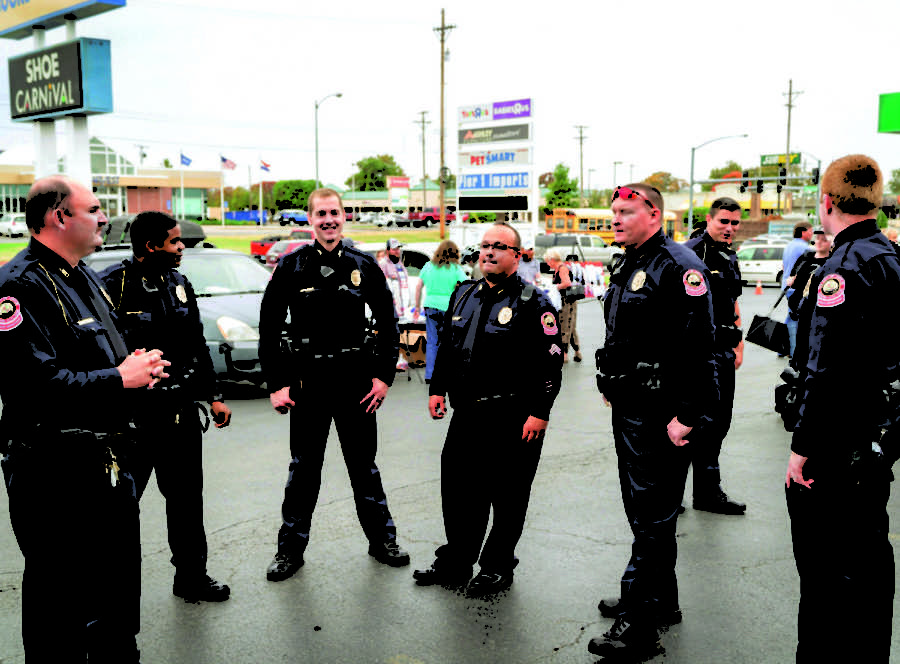Forum aims to strengthen bond between police and community
JPD officers stand guard outside Books-A-Million in Jop- lin, MO. on Oct. 22, 2015, for a Ben Carson book signing.
Various law enforcement officials of different ranks including Matt Stewart, Carl Francis, Delmar Haase, and Ken Kennedy, Victor Sly and Randee Kaiser attended a diversity panel held Nov. 10, in the Mills Anderson Justice Center Auditorium.
“Through these forums, we can strengthen the law enforcement’s relationship with the community, said Kaiser. “If we have a strong relationship with the community, then we’ll be able to serve them better. That’s ultimately our goal.”
“The important thing is to have open communication now while things are going well so when questions come up, they may not be as big of a deal because our community already has an understanding of what we’re doing,” said Stewart. “It’s things like this that give us the opportunity to explain not only what we do, but most importantly why we do what we do.”
Francis, who is also the city administrator, wanted to use the forum to “show people [law enforcement officers] are members of the community too. We live here; we work here, we play here.”
Sly, an officer at the Missouri Southern Police Department, retired from Joplin Police Department after 20 years and grew up in inner-city Kansas City.
“I want to give a real perspective of what a black man sees out here in the community,” said Sly.
The police departments in this area are doing several things to build relationships and communicate with the community. There is a Citizens Academy which is a free class to learn more about what law enforcement does. Local departments have websites and social media accounts and also attend bias briefing training, and some officers even coach children’s’ sports teams or work at schools. Many departments require officers to wear body cameras. They also have ride-along programs which give people an opportunity to interact with police in a neutral, educational setting.
Specifically, Haase said that officers are now undergoing considerably more diversity training than they were in the past.
“One of the problems with our country is that it likes to box in certain things,” said Stewart. “They like to say ‘you folks who look like this and talk like this, you belong over here, and those that look like this belong over there.’
Stewart believes this is part of our problem as a country.
“We’re always looking at what’s different about us; we’re all human beings,” he said. “All of us are a son, father, mother, or daughter; we all belong to somebody; we are somebody. We all have to treat each other as human beings.”
Stewart went on to say someone’s religion, beliefs, race, color of their skin, or gender should be irrelevant to law enforcement.
“Here at Missouri Southern, we have international admission, so we work with people of every culture,” said Kennedy. “We have to be in tune with people’s beliefs.”
Kennedy goes on to say that they screen officers on their knowledge of diversity before hiring them.
“We train officers to treat people with dignity,” he said. “We send people to diversity trainings to make them more aware and so they can come back and share with our officers.”
Your donation will support the student journalists of Missouri Southern State University. Your contribution will allow us to purchase equipment and cover our annual website hosting costs.




























